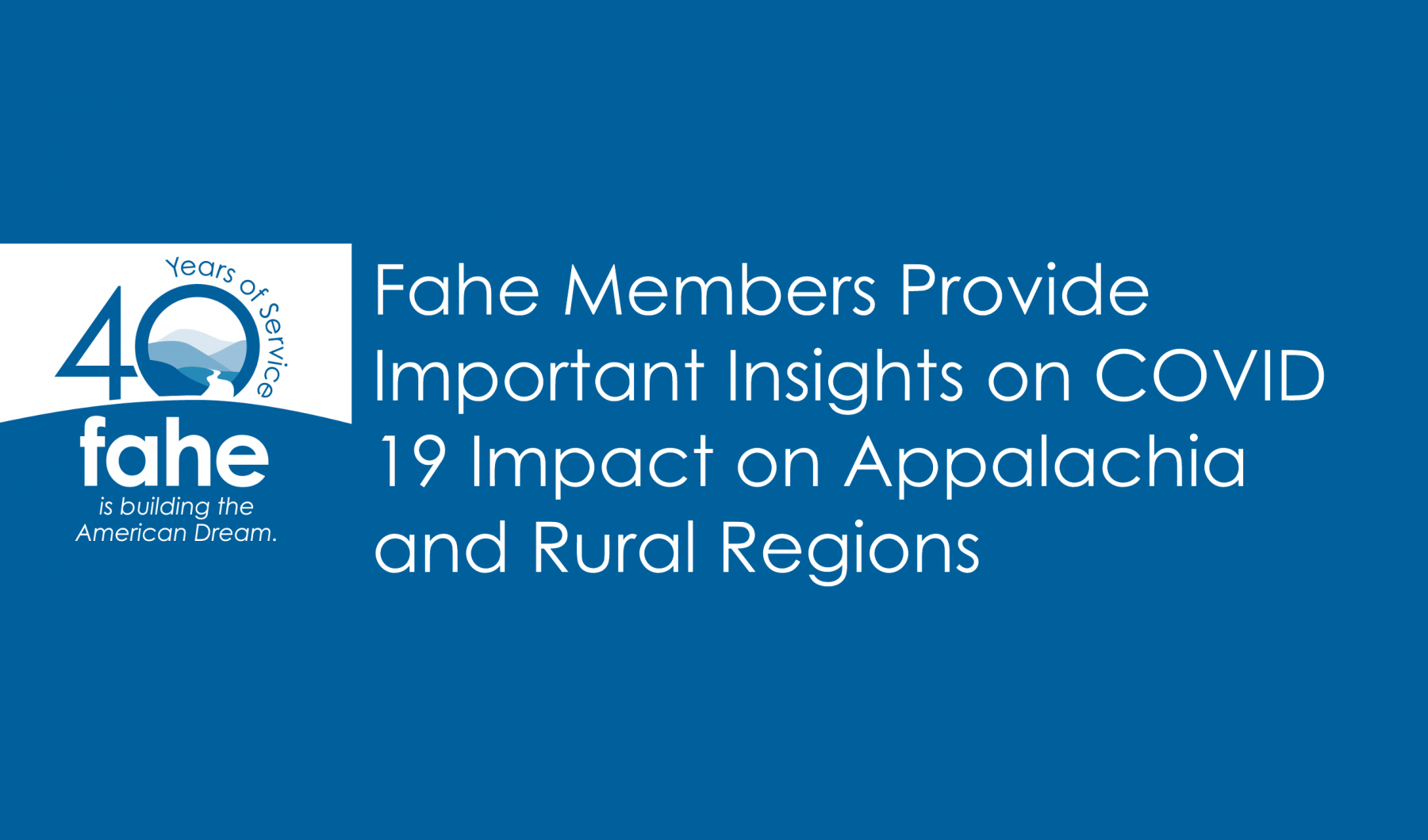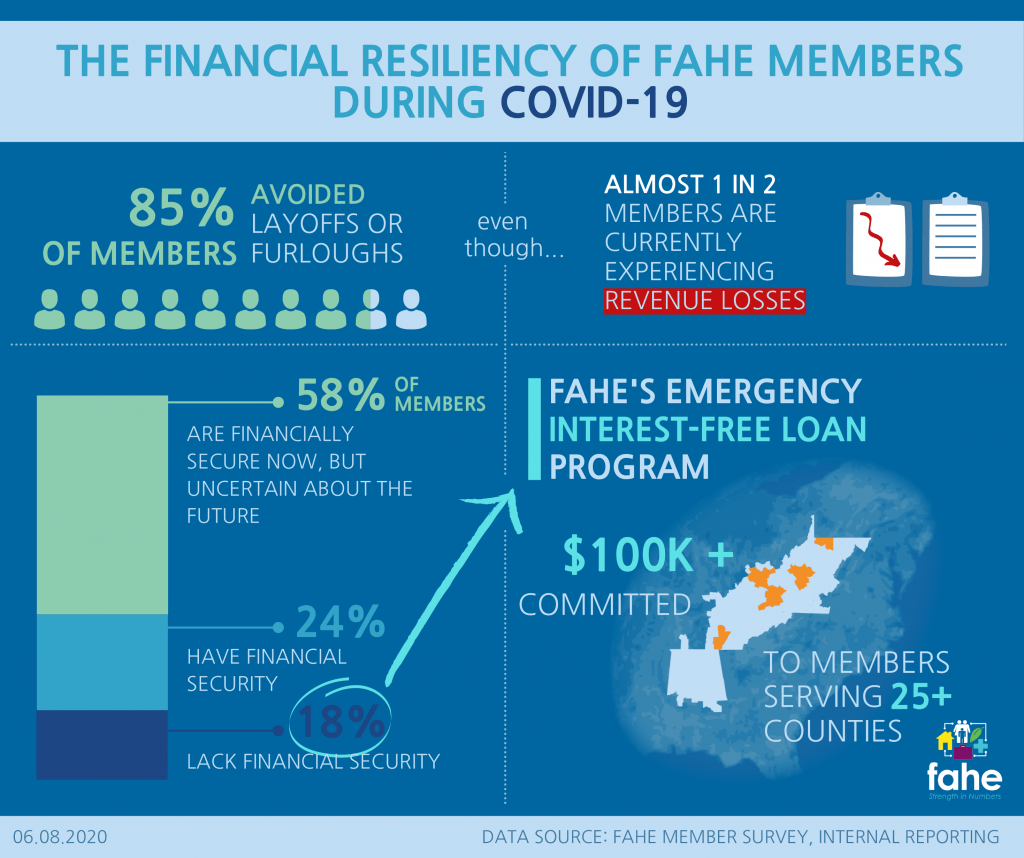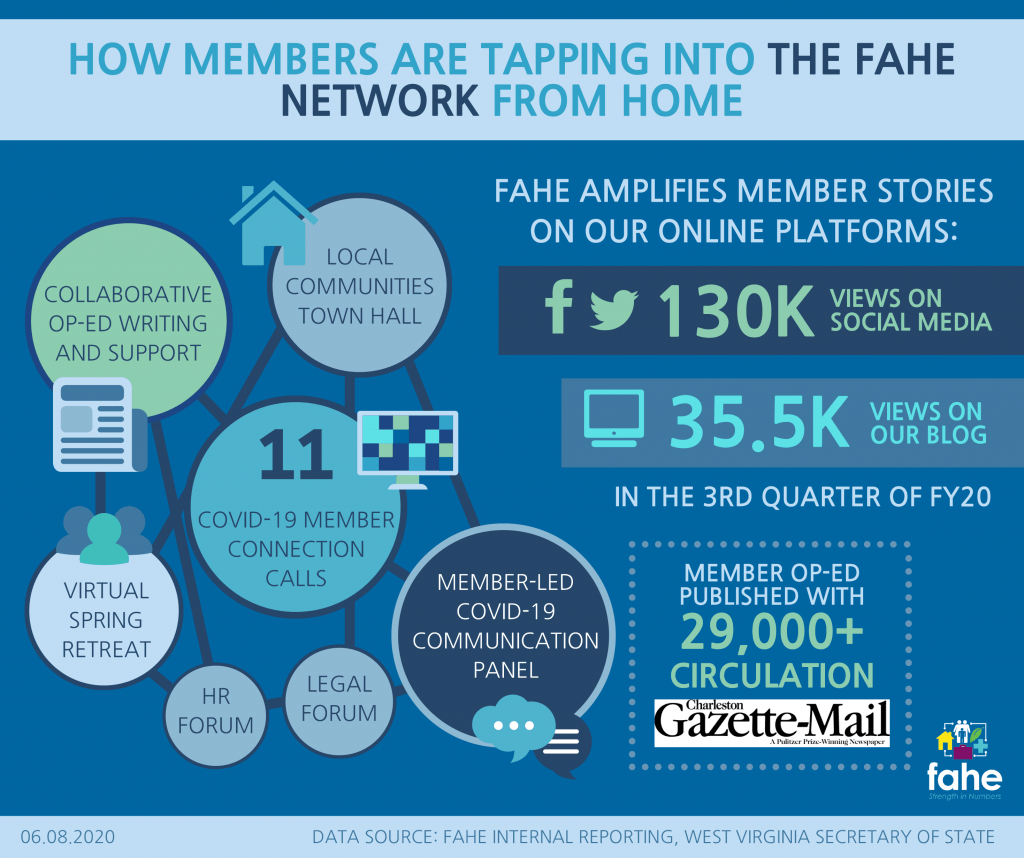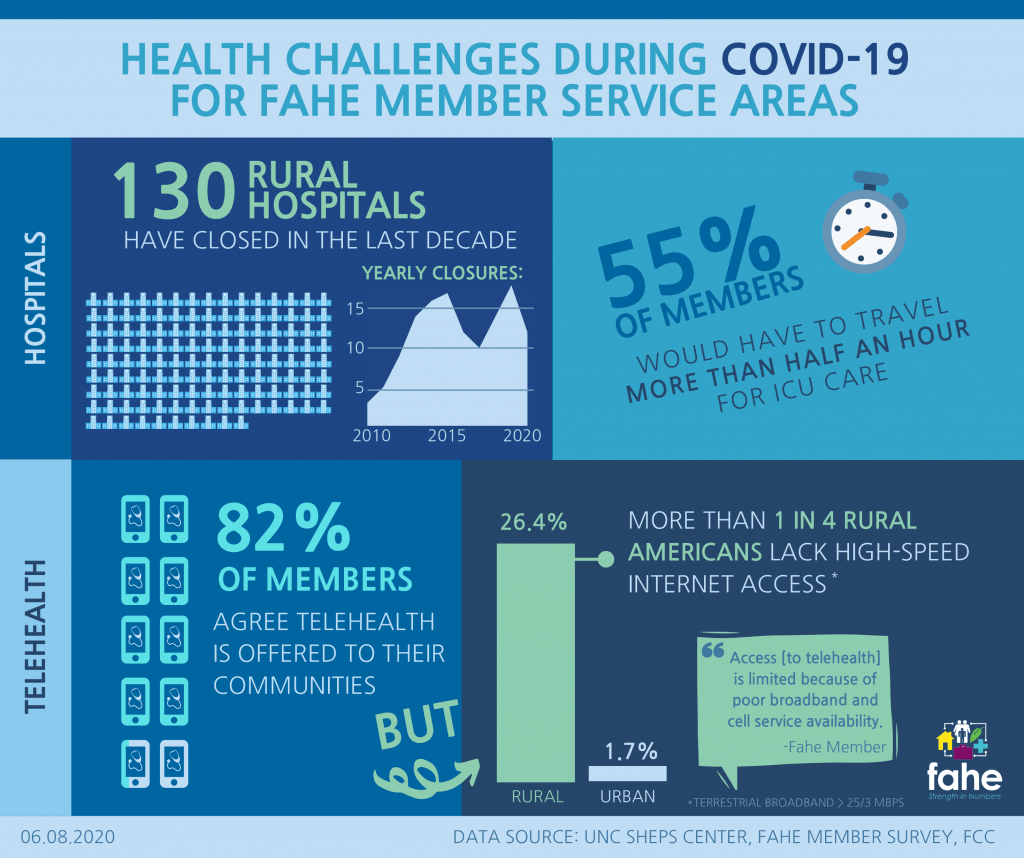
Fahe Members Provide Important Insights on COVID 19 Impact on Appalachia and Rural Regions
COVID-19 hotspots started in large cities, like New York, but rural areas have proven to be vulnerable as well, with outbreaks in places like Albany, GA also making headlines. Analyses predicting future hotspots include agricultural areas or counties with meatpacking plants or prisons. Just this week a regional grower of strawberries had to shut down operations in Unicoi, County TN due to a sudden cluster of cases.
Listening to the Membership is a foundational practice for the Fahe network, and revealed some important baseline information about the on the ground experiences of Member organizations, which provide essential connections to the people throughout their own communities.
In order to understand what these communities, residents, and organizations face during the pandemic, a three-part survey went out to Members over the past month. This questionnaire opened a window into the day-to-day concerns of people throughout Appalachia and gave the Network a baseline for monitoring future changes.
The suddenly conventional wisdom about the COVID-19 pandemic is that it has accelerated changes already underway, such as remote working. However, leaders in the social sector know that this moment is also revealing what already existed—especially the depths of inequality throughout in the United States, and worldwide.
The evidence of vulnerability across individuals and families is clear in the mass rise of unemployment, the long lines at food pantries, disruption to education, and clear socio-economic divides in essential jobs that are done face to face and those which can be done at a safe distance from others. Huge fluctuations in income or outright loss of jobs, health risks to the essential workers, untreated or untested people who lack access to health insurance or affordable care, as well as the specter of eviction or loss of utility service when ends don’t meet due are stressing families and straining community resources.
Community-based organizations, such as the ones that comprise the Fahe network, are the first-responders to places riven with inadequate access to food, housing, healthcare, technology, and economic opportunity.
The first survey queried Members on how they have been able to adapt to the guidance of their state officials, and manage their budget during the sudden economic downturn.
In the second week, questions focused on clients, and the effect of the COVID-19 pandemic on their lives.
Finally, Fahe asked the Membership how their communities are managing and how they perceive the guidance offered by local and state leaders.
Here is what we have learned and how it has informed further action:
Fahe Members’ capacity has allowed them to sustain operations, responding to increased demand for services despite a substantial number of members reporting a decline in revenue.

Their ability to ride out the economic downturn has an expiration date: although they are able to maintain operations in the immediate future, if the economic shutdown persists, they may have difficulty continuing to operate at the same level. Almost 60% of the respondents said that cash flow may be a challenge if the shut down and economic fallout continue into the fall. Consequently, Fahe has created a fund to provide access to zero interest loans to support operations.
In the same way that COVID-19 infections have slowly but surely moved into rural communities, the economic depression will too, as temporary shutdowns become permanent, people spend stimulus checks to stay current on their bills, and enhanced unemployment benefits end. One Member stated, “The impact on the economy is masked in this area… I am afraid that the major hit will come in a few months when companies determine it will be cheaper to cut the work force than carry them when orders don’t pick back up quickly.”
On the ground, over 50% of the responding Members say it is too soon to tell when things will return to “near normal”. They also anticipate that the future will bring additional challenges with another Member stating, “We are looking to establish a new normal that can weather a future reoccurrence of the virus or other such crisis.”
Fahe advocacy staff, Membership department, and Lending officers have provided analysis of the federal policy response, such as the CARES act, weekly calls to share best practices and answer questions, and access to finance and insight into the accounting best practices needed to benefit from payroll protection program funding.

As the Fahe Network takes stock of the needs of their neighbors and communities the see that over 80% of their clients experienced loss of income, more than 75% of clients lack access to school or daycare for their children (which also affects their ability to earn income), and more than 70% have difficulty paying bills. Food access is also a need, with over 51% of Members sharing this impact of the pandemic and shelter in place orders on their clients. More than 50% of Members stated that requests for service have increased. Members shared that the pandemic has personally affected more than one-third of their clients or their families either “a great deal” or “a lot”. This tracks with Fahe’s own loan serving data, where requests for forbearances are not as high as we might have expected, but follow the same trend as the national data. The staff continues to watch closely to see if there is a spike as the various stimulus programs end.
Members also see potential long-term challenges to local economies, which can affect their ability to fulfill their mission. One respondent commented, “We are starting to realize shortages of construction materials now…I suspect that this could be a new challenge to overcome in the next 6 months” , as well as almost two-thirds of respondents reporting permanent closures of local businesses, and more than three-fourths reporting layoffs and furloughs by large employers.
Meanwhile local businesses that remain open have shifted their business models to accommodate social distance requirements, despite there being widespread closures of restaurants and retail spaces. In terms of access to medical care, Members observe that telehealth is widely offered but are concerned that overall lack of access to broadband internet or actual computer equipment do not make it a viable option. Although 45% of Members report that people in their community could access ICU care less than 30 minutes away, over 45% report that ICU care is between 30 minutes and two hours away. One Member reported, “Our local hospital is operating with a skeleton crew but this was since before COVID-19”, raising concerns about how well equipped some accessible healthcare is. A future spike in case counts as social distancing measures relax, could easily overwhelm the dwindling rural hospital capacity.

The anchoring role Members play in their areas as sources of support and incubators of individual leadership makes them an important source of insight into the experience of rural and Appalachian regions. Later this summer, and again in the fall, Fahe will re-survey the Membership to take another snapshot of their perspectives on the pandemic’s effects on their organizations, clients, and communities.
